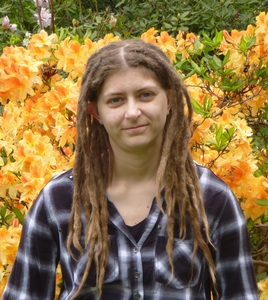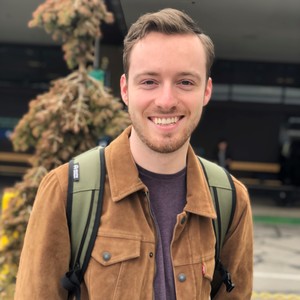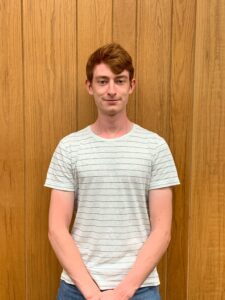The field of Quantum Computing has been rapidly growing over the past decade. To help meet the demand for a skilled workforce, the University of Wisconsin–Madison launched the MSPQC program — the first of its kind in the U.S. — in 2019. MSPQC students receive rigorous academic instruction from top-tier quantum computing faculty, opportunities for independent research in the field, and strong professional development support. The third cohort graduated in August 2022 with a 100% job or doctoral program placement rate within 6 months of graduation.
MSPQC students come from many different STEM backgrounds, undergraduate institutions, and countries. Some of the students in the 2022 cohort were in the workforce for two or more years and used the program to launch a career change into this cutting-edge field; others enrolled soon after earning a bachelor’s degree and are seeking the job or graduate school preparation this accelerated program provides. The MSPQC program is dedicated to not only prepare students to enter and succeed in the field of quantum computing, but to contribute to expanding STEM workforce diversity. From Fall 2019 to Fall 2022, the program increased the number of admitted women by 10% and is currently working to secure funding to increase support for underrepresented students in STEM.
Is the MSPQC program right for you? To help prospective students answer this question, we asked three graduates, Why MSPQC?
Brooke, August 2022 MSPQC Graduate
Current Physics PhD Student at UW-Madison
 Why did you choose the MSPQC program at UW-Madison? I was looking to do a Master’s degree but most programs (esp. in the UK) were research-based and expected you to have an undergraduate degree in physics (my BSc is in Computer Engineering). MSPQC consisted of primarily taught courses and was open to persons with a non-physics background. I didn’t see anything else like it! It also was an easy choice because I did my undergraduate degree at UW-Madison.
Why did you choose the MSPQC program at UW-Madison? I was looking to do a Master’s degree but most programs (esp. in the UK) were research-based and expected you to have an undergraduate degree in physics (my BSc is in Computer Engineering). MSPQC consisted of primarily taught courses and was open to persons with a non-physics background. I didn’t see anything else like it! It also was an easy choice because I did my undergraduate degree at UW-Madison.
In what ways did the program prepare you for your current position (or studies)? I think the combination of taught courses, laboratories and independent research opportunities was a good balance. Everything was relevant to what I am doing now (pursuing a PhD in a related field) – although I didn’t know ahead of time that’s what I wanted to do! The MSPQC program was a bridge for me to change fields from Engineering into Physics.
What was a highlight of your time in the MSPQC program? My favorite part of the program was the final summer, when we had the Quantum Computing Laboratory (PHYS 707). It was there that I was able to put into practice everything I’d learned over the previous two semesters and see it come to life in real experiments. Likewise, my independent research project was becoming interesting and more fruitful.
What did you enjoy about living in Madison, WI? It has a lot of the advantages of a big city without the skyscrapers (lots of restaurants, good public transport, and big events that draw crowds).
What would you say to anyone considering the program? It will be a very personal adventure. The course is very much tailored to your specific background and goals.
Jacob, August 2022 MSPQC Graduate
Current Quantum Test Engineer at Rigetti Computing
W hy did you choose the MSPQC program at UW-Madison? I chose the MSPQC program at UW-Madison because I wanted to study quantum computing and physics in general, and because the program was intended for people with computer science backgrounds to be able to succeed. I looked into other physics masters’ programs, but I wasn’t eligible for most of them without more physics-adjacent education. Of the few programs geared specifically towards quantum computing, UW-Madison’s had been around the longest, and was in the city where I was most interested to live.
hy did you choose the MSPQC program at UW-Madison? I chose the MSPQC program at UW-Madison because I wanted to study quantum computing and physics in general, and because the program was intended for people with computer science backgrounds to be able to succeed. I looked into other physics masters’ programs, but I wasn’t eligible for most of them without more physics-adjacent education. Of the few programs geared specifically towards quantum computing, UW-Madison’s had been around the longest, and was in the city where I was most interested to live.
In what ways did the program prepare you for your current position (or studies)? My current role involves working closely with the physics of quantum computing devices, and leverages my software background as well. The MSPQC program prepared me for this position by giving me a good understanding of the current state of quantum computing efforts — as thorough as could be expected from a 1-year program. Given the range of education backgrounds of the students, it was important to me that the MSPQC program allowed me the flexibility to choose most of my courses, so that I could make the most of the limited time available.
What was a highlight of your time in the MSPQC program? For the final project in Advanced Quantum Computing, a friend and I worked together to characterize a qubit on IBM’s Qiskit platform by sending pulses to perform measurements. We spent much longer than necessary for the class project because we were having so much fun seeing the concepts we’d learned in the last year come to life.
What did you enjoy about living in Madison, WI? I really enjoyed the parks and the lakes in Madison. I spent a lot of time playing spikeball in James Madison Park, walking through Tenney Park, and sailing on Lake Mendota.
What would you say to anyone considering the program? The MSPQC program is a great program, but it’s partially up to you as a student to get the most out of it. One year isn’t a lot of time to learn such a deep and complex field as quantum computing, especially if you don’t have any other physics degree. It’s going to be hard work (and a lot of it), but take challenging classes, go to office hours, spend time to understand the homework answers, and especially leverage the diverse knowledge of your classmates!
Jacques, August 2020 MSPQC Graduate
Current PhD Student at KU Leuven and IMEC in Belgium
Why did you choose the MSPQC program at UW-Madison? I had the opportunity to continue my studies in the USA thanks to a fellowship from the Belgian American Education Foundation (BAEF). I was first exposed to quantum mechanics through an elective course during my electronics engineering courses in Belgium and it really blew my mind. The following summer I purchased a book on quantum computing and information (Nielsen and Chuang) to further learn about emerging applications of quantum mechanics, which I found truly fascinating. Of course, I never finished the book by myself, but it did make me start browsing around for quantum computing programs in the USA, and that is how I found the MSPQC at UW-Madison, which was, at that time, one of a kind.
In what ways did the program prepare you for your current position (or studies)? The program is structured around a couple of specialized courses, which gave me a solid foundation in quantum information and computing, both from a conceptual/theoretical and a physics/hardware perspective. Besides the backbone courses, the program is flexible and allowed me to pick and choose courses that I found most useful. Through research credits, I got proper exposure to research, resulting in my first journal publication. This MSPQC allowed me to prepare properly for my PhD on quantum computing with superconducting circuits, where I had a true head start, both in knowledge and experience.
What was a highlight of your time in the MSPQC program? The highlights of my time in the MSPQC program were the many interactions with the amazing faculty, especially the research with Prof. Shimon Kolkowitz.
What did you enjoy about living in Madison, WI? Madison will forever feel like a second home for me, with the excellent beer and friendly people, it immediately felt familiar to Belgium. My favorite place in Madison has to be the Hoofer sailing club, I spent every available windy summer day on lake Mendota, improving my windsurfing skills–during winter, I even learned how to do snow-kiting with skis on that same lake.
What would you say to anyone considering the program? For anyone considering the program, I highly recommend it. To get the most out of the program, don’t restrict yourself to just the courses, engage with peers and the world class faculty.
